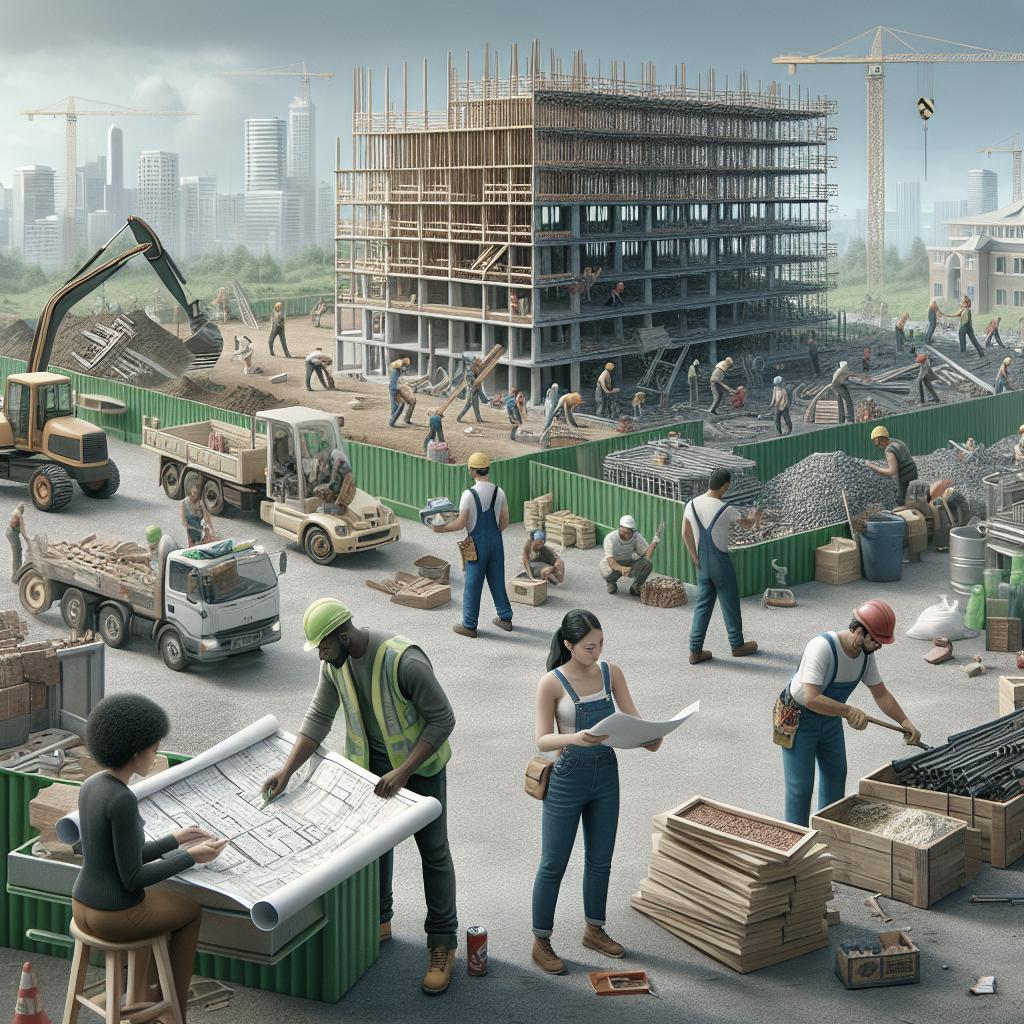“`html
Unveiling the Benefits: Using Recycled Materials in Construction
In recent years, the construction industry has witnessed an increasing trend towards sustainability and eco-friendliness. One crucial aspect of this movement is the use of recycled building materials, which offer a myriad of environmental, economic, and aesthetic benefits. This blog post will delve into what recycled building materials are, provide examples of such materials, and explore the various advantages they bring to construction projects. We will also spotlight some high-quality recycled building materials available in Bristol. With sustainability ever more critical, understanding and embracing recycled materials could profoundly impact how we build the world of tomorrow.
What Are Recycled Building Materials?
Recycled building materials are components that have been repurposed from previous constructions or industrial processes. These materials are incorporated into new constructions after undergoing a process of recovery and reformation. They range from commonly recognized elements like recycled steel to innovative solutions like reclaimed wood or eco-friendly concrete substitutes.
The concept of using recycled materials in construction is driven by a need to reduce waste and conserve natural resources. As urbanization accelerates, traditional building practices that heavily rely on virgin materials become unsustainable—in part due to resource scarcity and increasing production costs. Recycled materials offer a sustainable alternative by extending the lifecycle of existing materials and minimizing environmental impact.
Examples of Recycled Building Materials
One of the most widely used recycled materials in construction is recycled steel. It retains properties similar to new steel, making it an ideal choice for structural applications. Its recycling process is highly efficient, requiring significantly less energy than producing new steel, thus reducing its carbon footprint.
Reclaimed wood is another example, offering a rustic aesthetic while supporting sustainable practices. It is sourced from old barns, factories, and warehouses, then treated and repurposed for new projects. Reclaimed wood not only preserves forests by reducing the demand for new lumber but also imbues spaces with unique textures and historical character.
Additionally, recycled aggregates such as crushed concrete and glass can be used in the production of new concrete mixtures. These materials enhance the mechanical and environmental performance of concrete, demonstrating that recycled components can match—and often exceed—the functionality of traditional materials.
Benefits of Using Recycled Building Materials
Perhaps the most compelling benefit of using recycled building materials is their positive environmental impact. By reducing the need for virgin materials, recycling conserves finite natural resources, curtails deforestation, and lowers energy consumption. This collective reduction significantly lessens greenhouse gas emissions associated with construction activities.
Economic advantages are also prominent, as recycled materials often come at a lower cost compared to their new counterparts. They help developers achieve budget-friendly project goals while benefiting from durability and reliability comparable to newly sourced materials. Additionally, leveraging recycled materials can open the door to governmental incentives and certification programs such as LEED (Leadership in Energy and Environmental Design).
The use of recycled building materials can boost a project’s marketability, appealing to environmentally-conscious clients. Architects and developers are increasingly integrating environmental sustainability into their projects, which can enhance reputation, attract clientele, and increase property value over time.
High Quality Recycled Building Materials Bristol
In Bristol, a pioneer city in eco-friendly initiatives, several suppliers excel in providing high-quality recycled building materials. Companies like Bristol Reuse, specialize in gathering and refining building materials from deconstructed sites, offering products ranging from reclaimed bricks to sustainable glass.
These suppliers in Bristol pride themselves on their circular economy model, ensuring that materials are not wasted, and instead, continuously cycled through use. Bristol’s commitment to using recycled materials not only supports local businesses but also contributes significantly to the city’s environmental goals.
By choosing to incorporate locally-sourced recycled materials from trusted suppliers, construction projects in Bristol can simultaneously adhere to sustainability mandates and benefit from the reduced embodied energy of transported goods, reinforcing Bristol’s status as an eco-conscious construction hub.
Related Posts
- Sustainable Construction Methods: Building a Greener Future
- Top 5 Eco-Friendly Innovations in Architecture
- How to Design a Home with Minimal Environmental Impact
Final Thoughts
| Subheading | Content Summary |
|---|---|
| What Are Recycled Building Materials? | Explains the concept and purpose of recycled building materials in reducing waste and conserving resources. |
| Examples of Recycled Building Materials | Highlights common materials like recycled steel, reclaimed wood, and aggregates, demonstrating their use and benefits. |
| Benefits of Using Recycled Building Materials | Discusses environmental, economic, and marketability advantages of recycled materials in construction. |
| High Quality Recycled Building Materials Bristol | Focuses on reputable suppliers in Bristol, showcasing their contribution to eco-friendly construction. |
“`
